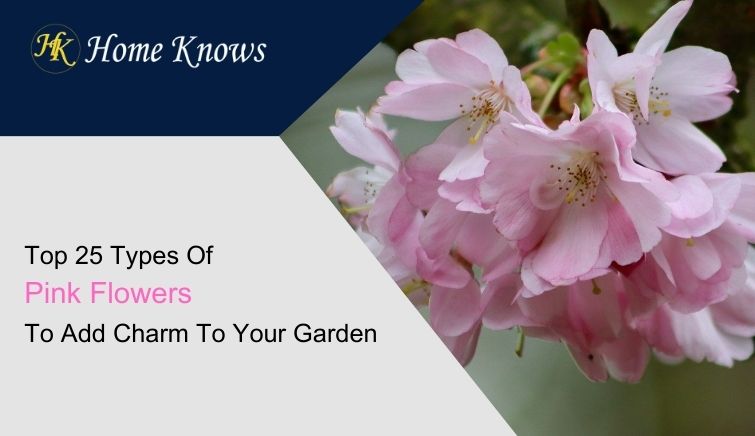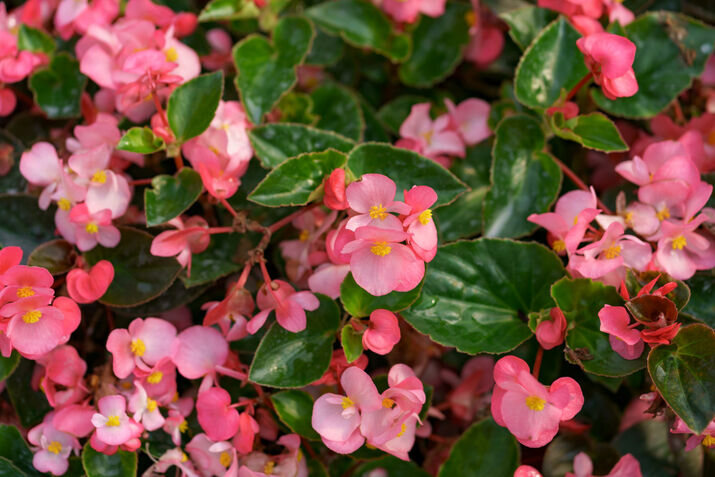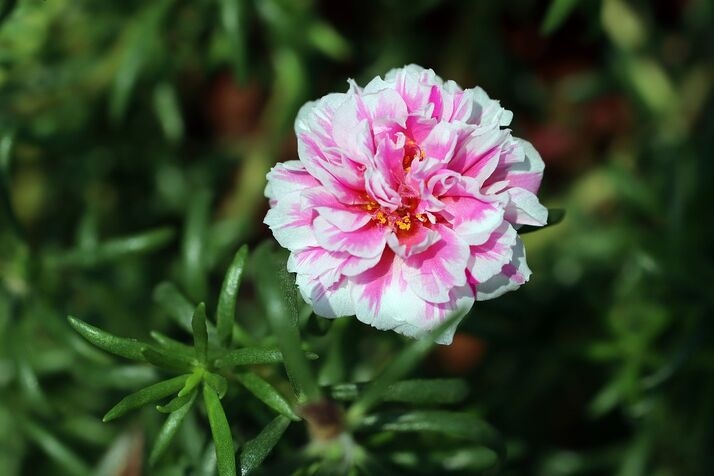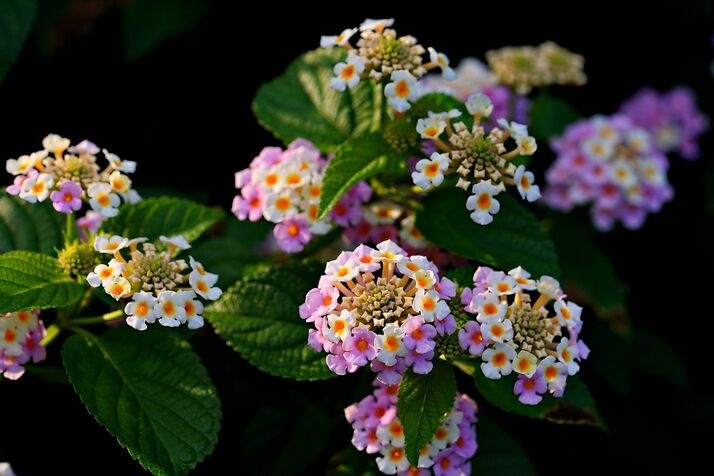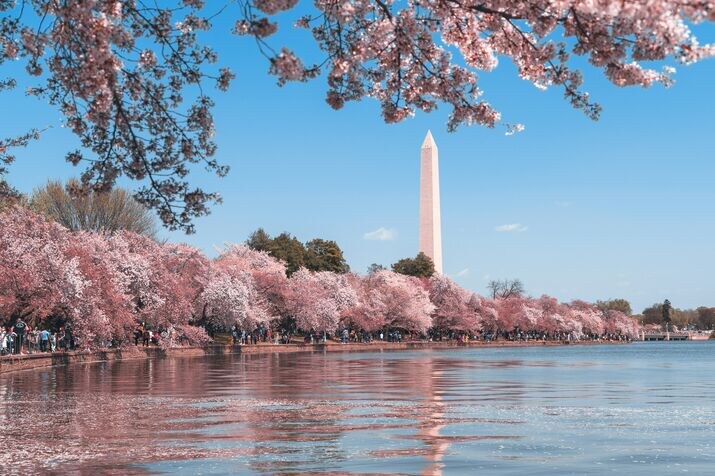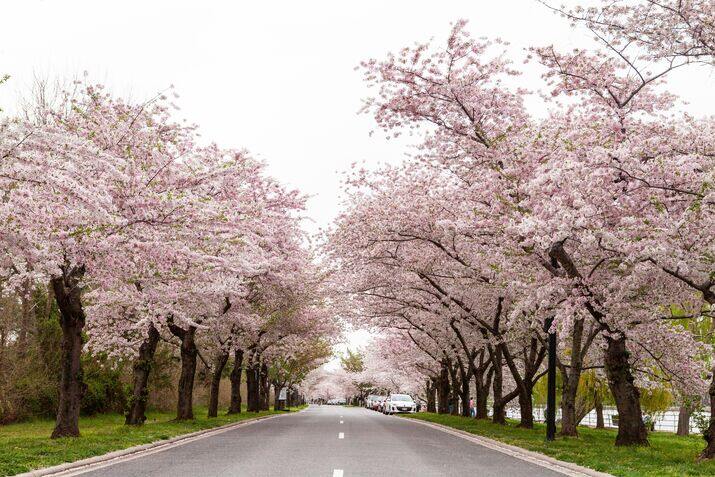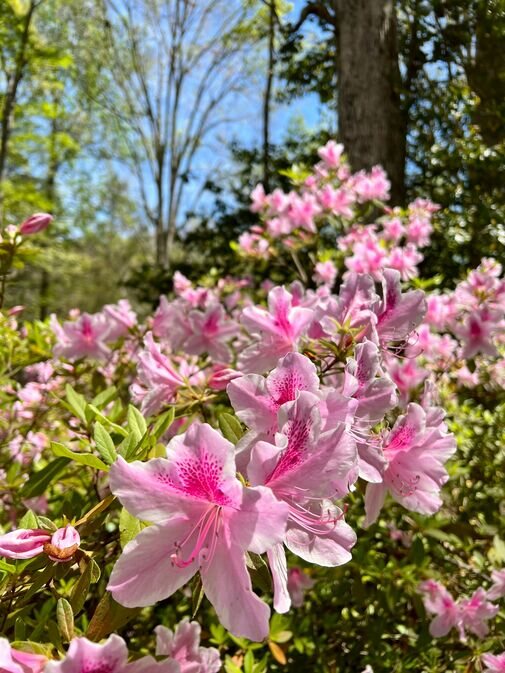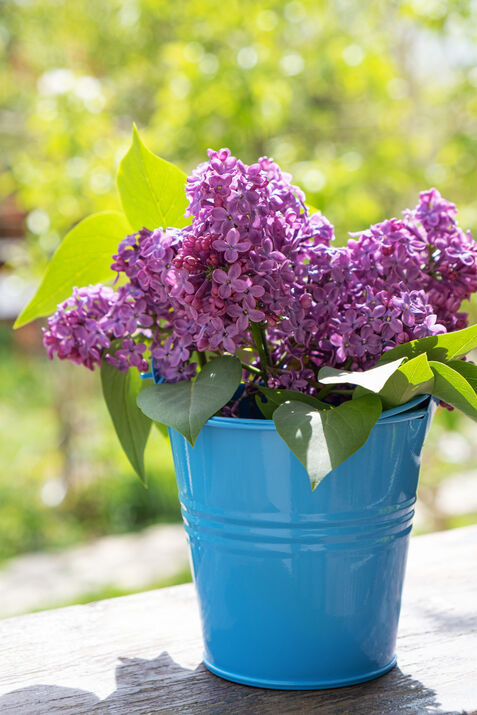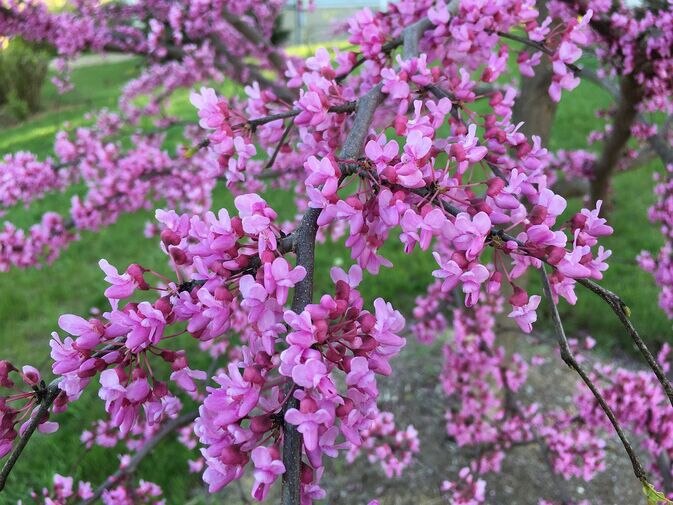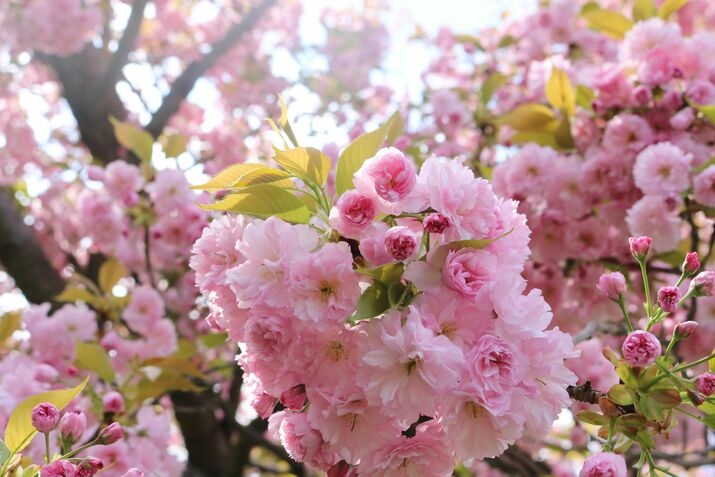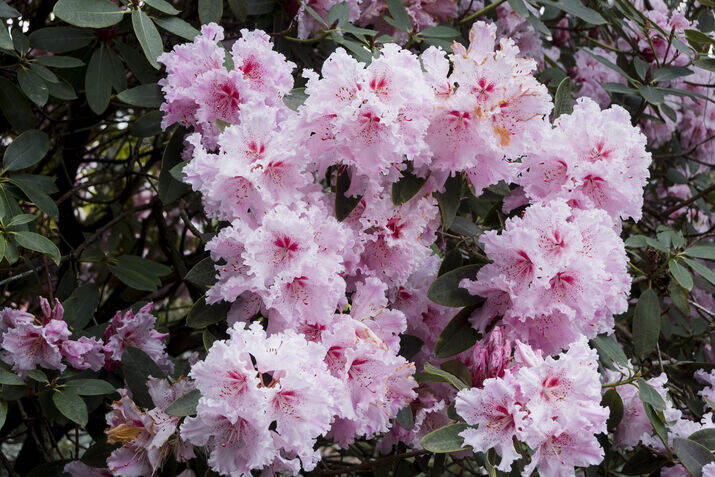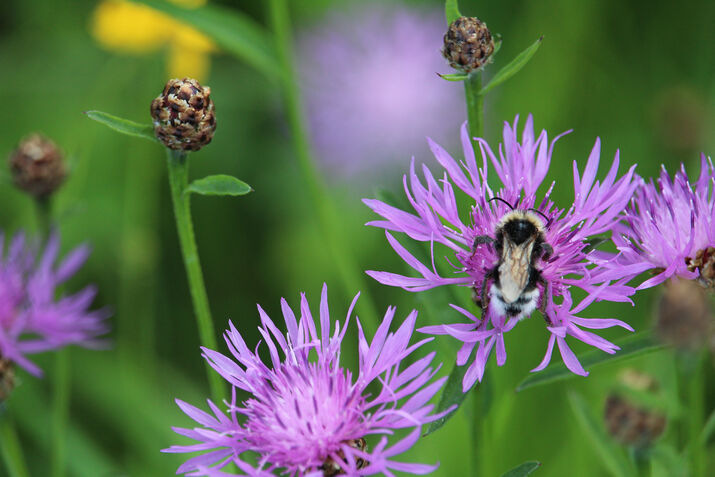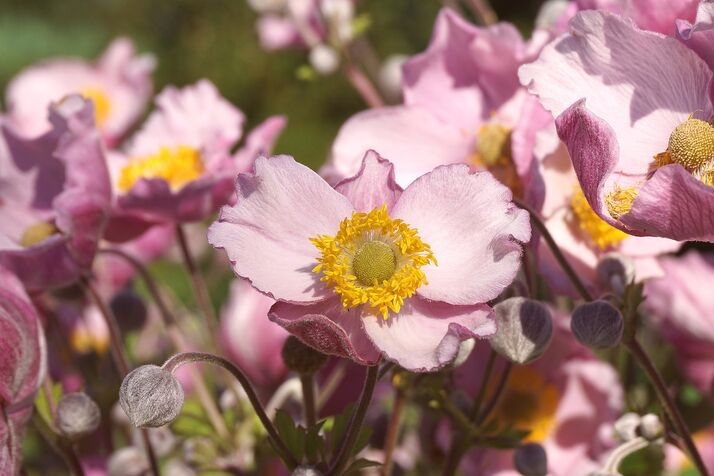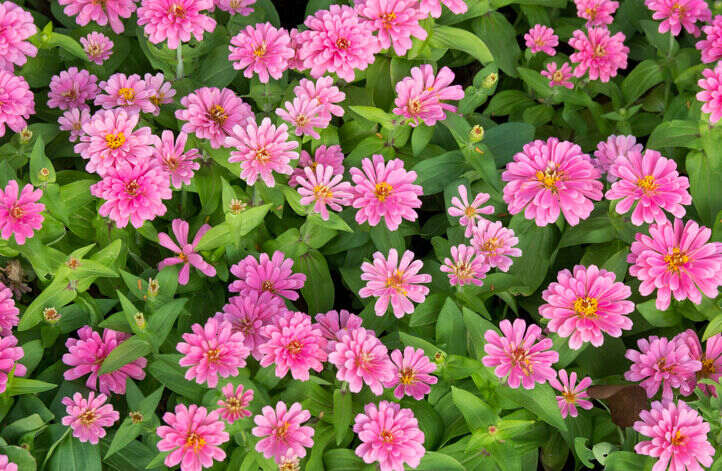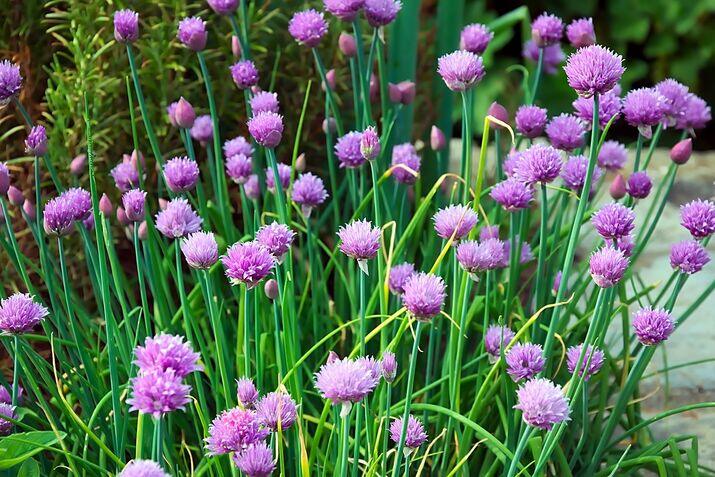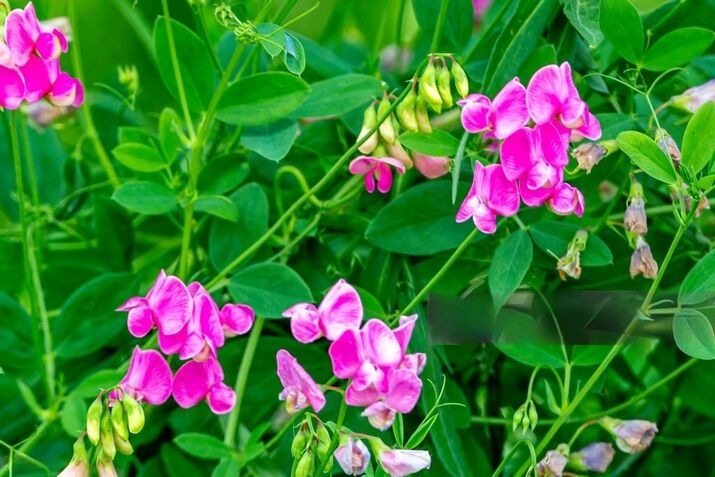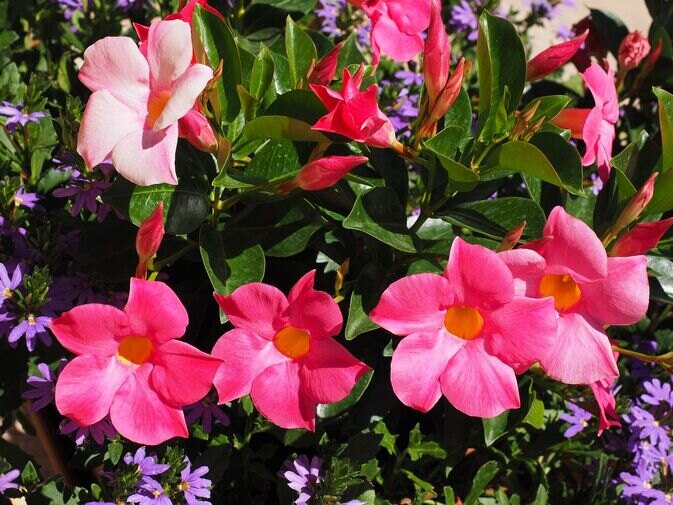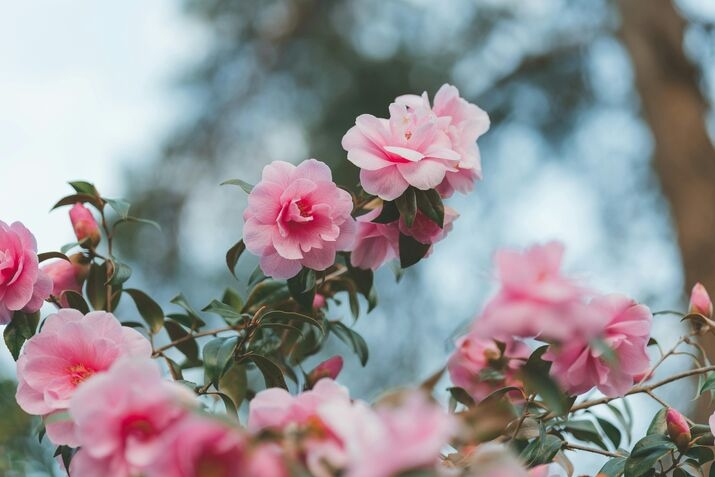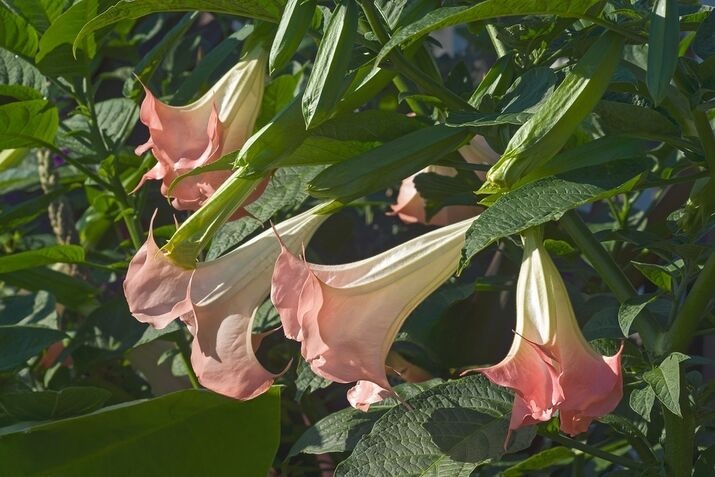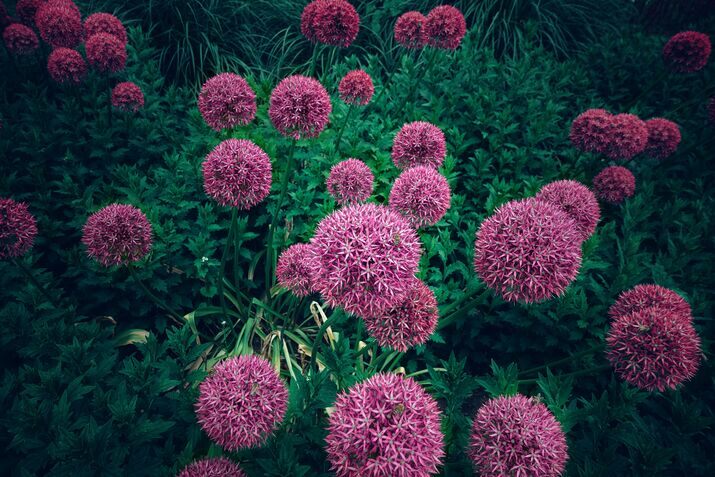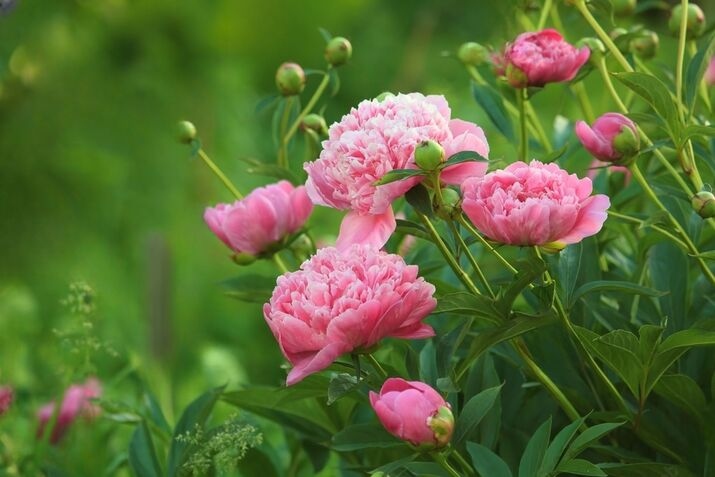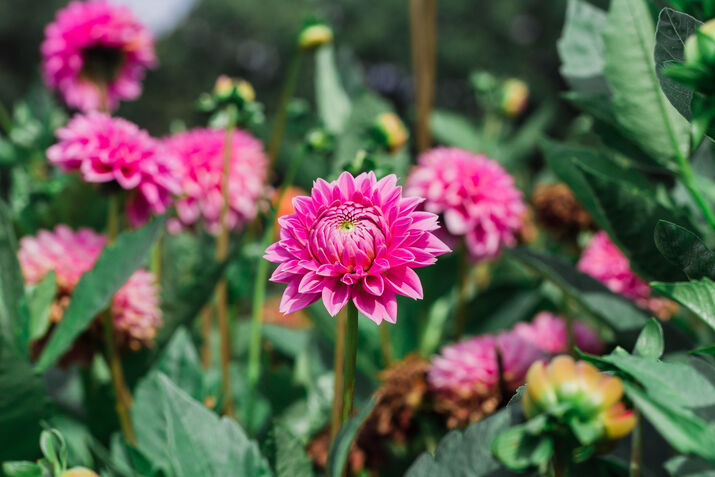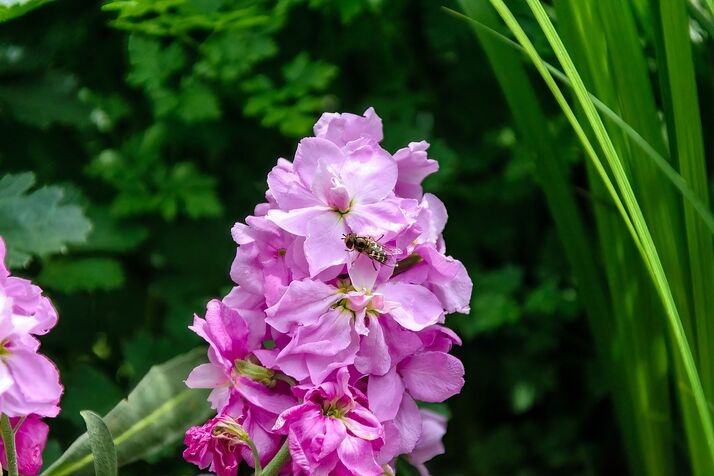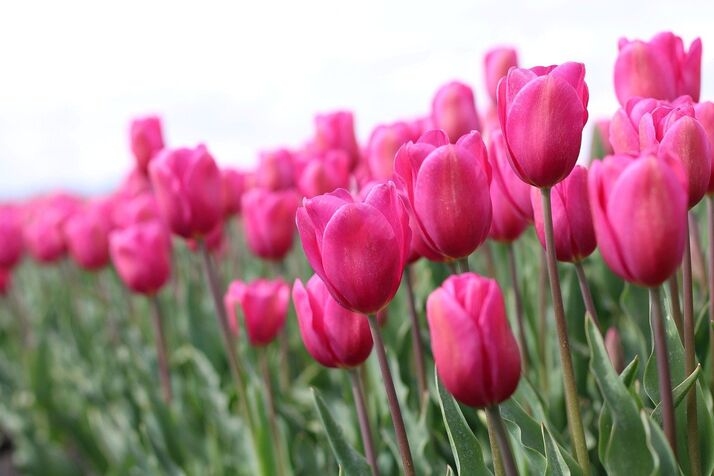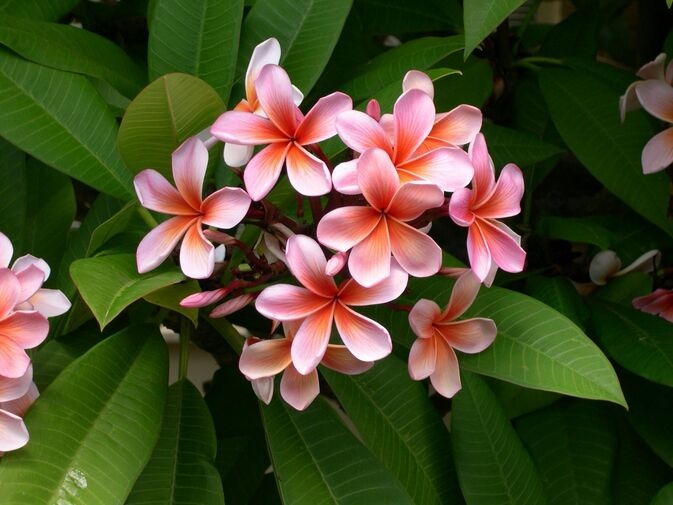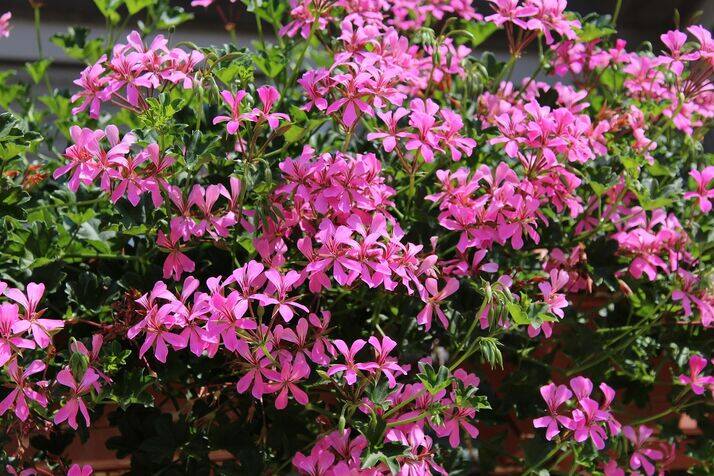Introduction
Are you ready to enhance your garden space with gorgeous pink flowers? This color is undeniably happy and is meant to spread love, femininity, and gentleness. With its plenty of variety available, you can enjoy flowers that bloom from summer to spring to fall.
In this article, we have shared the top 25 types of pink flowers with eternal beauty and a rich history of romantic vibes. The shades of pink can be cool, warm, or neutral, making it an ideal choice for celebratory events.
Without any further ado, let us dive into the flowers that help you form a pink paradise in no time!
Benefits of pink flowers in your garden
Enhancing the visual appeal
They produce picturesque scenes and balance the color schemes in your garden to boost the visual appeal. Implementing this color scheme is also one of the easiest monochromatic plans.
There are various ways to decorate these flowers. It includes adding hanging baskets, growing or adding them in unique hardware, using oversized containers, or adding structural elements, including the covered entrance, stately columns, and the linear pathway.
Attracting pollinators
Pollinators are crucial to produce most nuts, fruits, and berries. They account for more than 75% of the reproductive success of these flowering plants. It attracts butterflies that prefer red, bright pink, yellow, and orange flowers.
The visual cue of pink flowers helps attract pollinators. However, there are other factors as well that contribute to attracting pollinators besides the petal colors. They include UV light patterns, scent, and nectar guides.
Creating a calming and soothing ambiance
This color gives a feeling of comfort and a sense that everything will be okay! This color scheme also promotes the feeling of compassion and love. Smelling flowers proves to relieve anxiety and reduce stress levels.
The research found that the sweet aroma from flowers improves social behaviors, such as inducing qualities to help others. Surround yourself with bright-colored flowers to boost your energy levels.
Top 25 types of pink flowers
Pink is an excellent choice for bouquets, table arrangements, wedding decor, and other floral arrangements. We’ve listed the top 25 types of pink flower names below to decorate your garden with.
Wax Begonia
Wax Begonia (Begonia x Semperflorens) can do both, i.e., they are indoors and outdoors. They feature bushy, compact structures with dark green, flesh stems, or bronze waxy leaves.
These loose clusters of flowers bloom through the summer and into the fall season.
Moss Rose
Moss Rose (aka Portulaca or Purslane) is another tough flowering plant that stands up to almost anything. However, all its parts are toxic to dogs and pets. So, you should avoid growing them nearby!
‘Calipso Mix’, ‘Afternoon Delight’, ‘Mojave’, ‘Sundance’, and ‘Sundial’ series are some of the common varieties of Moss Rose. These plants are ideal for container gardens, as edging along paved walkways, rock gardens, above stone walls, and side the front of garden bed borders.
Lantana
The Lantana flower is a lovely addition to any garden or landscape. Lantana, scientifically known as Lantana camara, is a colorful and versatile flowering plant native to tropical regions.
The variety of Lantana produces clusters of small, vibrant pink flowers that bloom profusely throughout the warm months.
These flowers are typically arranged in tight clusters, creating a burst of color that attracts butterflies and pollinators. Lantana is prized for its resilience and ability to thrive in various conditions, including heat, humidity, and drought.
Lantana is a lovely plant, but it can also be invasive in some areas, so it’s crucial to keep an eye on its growth and stop it from spreading out of control
Cherry Blossom
Cherry Blossoms or Sakura is one of the prettiest and native pink flowers in Japan. These flowers are famous for their vanilla-like fragrance.
The names, species, and cultivars classify the cherry trees in Japan. Prunus (Kamakura) is its representative cultivar characterized by deep pink petals. Another famous variety is Yoshino cherry blossoms! They are pure white flowers with a hint of pale pink color.
Cherry trees
Weeping cherry trees (prunus pendula), Kwanzan cherry trees (Prunus serrulata ‘Kwanzan’), and Weeping Higan cherry trees (Prunus subhirtella ‘Pendula’) are some of its common varieties. They are also known as cherry blossom trees.
The ideal time for planting cherry trees is early spring or late fall. You can grow them in favorable weather conditions for young saplings to produce roots.
Azalea
These flowering shrubs belong to the genus Rhododendron, typically known for their colorful and vibrant blooms. They can bloom in spring, summer, or fall seasons based on the species and variety.
Some popular varieties of Azalea include Getsutoku, Electric Lights (Rhododendron ‘UMNAZ 493’), Gumpo (Azalea x ‘Holland’), Rosebud, Imperial Queen™ (Azalea x ‘Monal’). They are used in landscaping, gardens, and as ornamental plants.
Lilac Bush
Lilac Bushes (Syringa Vulgaris) produce clusters of fragrant pink flowers. They emit a sweet, floral scent that perfumes the air, making them ideal for cutting and bringing indoors.
It has different meanings in different cultures. For the Celts, it is a magical flower because of its sweet scent. This evokes ancient love and a special affection for widows in Victorian times. They are small, tubular flowers arranged in dense, pyramid-shaped clusters called panicles.
Eastern Redbud
The Eastern Redbud, scientifically called Cercis Canadensis is native to the eastern regions of North America.
The flowers are small, lavender-pink, and appear in clusters along the branches.
There are several cultivars of Eastern Redbud available, including ‘Forest Pansy’. These flowers feature purple foliage, and ‘Alba’ has white flowers instead of pink. Its ideal growing conditions include full sun to partial shade along with a well-drained soil ecosystem.
Kwanzan Cherry
A single Kwanzan cherry flower includes 30-50 petals of deep-pink double blooms. These trees are prized for their ornamental value and are commonly used as specimen trees in gardens, parks, and along streets and boulevards.
Kwanzan Cherry prefers full sun and well-drained soil. They are adaptable trees that can tolerate a variety of soil types, including clay, loam, and sandy soils.
Pink Tabebuia
These are another famous pink flowers, belonging to the genus Tabebuia, with its scientific name being Tabebuia rosea. They are also known as ‘pink trumpet trees.’ They make excellent focal points in landscapes and can also be used to line streets or pathways.
These Tabebuia trees are relatively low-maintenance and are suitable for planting in gardens, parks, and along streets & avenues. Its flower first blooms after three years of planting. Some other common names for Tabebuia include poui, Tecoma, and rosy trumpet tree.
Bee Balm
Bee Balm (Monarda spp.) is a popular perennial plant known for its vibrant, aromatic flowers and its ability to attract pollinators like bees, butterflies, and hummingbirds. Bee balm flowers feature a spiky appearance, and a lush, round shape.
Some popular varieties of bee balm pink flowers names include Monarda ‘Pink Lace’, and Monarda ‘Raspberry Wine’. These plants can grow to be about 2 to 4 feet tall and spread about 2 to 3 feet wide.
Anemone
Anemones captivate with their delicate blossoms and are a favorite among gardeners for their presence to add a soft, romantic touch to any setting. They grow in a basal arrangement with a lush green backdrop for the flowers.
There are many varieties of Anemone flowers including De Caen Anemones, Queen Charlotte, Serenade, Richard Ahrens, Hadspen Abundance, and so on.
Zinnia
The Zinnia Pink flower is a stunning and popular choice for gardens, adding a splash of vibrant color with its bright pink petals. Zinnias are annual flowering plants native to Mexico and South America, and they come in a variety of colors, including shades of pink.
Zinnia typically features large, daisy-like blooms with multiple layers of petals, creating a full and eye-catching flower head. These flowers are beloved for their long-lasting blooms, making them ideal for bouquets, borders, or containers. Zinnias are relatively easy to grow, thriving in full sun and well-drained soil.
Chives
Chives are easy-care pink flower herbs with various culinary uses. They are ideal for the kitchen, vegetable garden, and cottage garden plants. They are round, fluffy flowers that appear in clusters on top of tall, thin stems.
These pink flowers typically grow about 12 to 15 inches tall, with a similar spread as they mature and form clumps. Chives like consistent moisture and should be watered regularly, especially during the dry periods.
Pink Wild Indigo
Pink wild indigo, scientifically known as Baptisia australis var. minor, is a fascinating perennial plant native to North America. The distinctive feature of these flowers is trifoliate leaves. It means each of its leaves is composed of three leaflets.
The pink wild indigo can fix nitrogen in the soil like other members of the legume family. It improves soil fertility over time without the need for chemical fertilizers.
Mandevilla
Mandevilla is a genus of tropical and subtropical pink flowers vines native to Central and South America. The plant features glossy, dark green leaves, creating a beautiful backdrop for the bright flowers.
You can propagate Mandevilla from seeds or cutting. All the Mandevillas were vining and climbing plants initially. However, some of their varieties appear in the shape of shrubs nowadays.
Camellia
There are plenty of Camellias that bloom in different shades of pink! Camellias can live for decades, even centuries. Planting a Camellia is like starting a flora legacy in your garden flowers.
Some famous pink flowers varieties of Camellias include April Kiss (C. Japonica ‘April Snow’), Ballet in Pink (Camellia x williamsii), Buttons n Bows (C. Japonica ‘Buttons N Bows’), and Ella Ward Parsons (C. Japonica ‘Ella Ward Parsons’), etc.
Angel’s Trumpet
The pink angel’s trumpet, or Brugmansia, is a remarkable flowering plant known for its large, pendulous flowers and distinct fragrance. Angel’s Trumpet is also used to make medicines.
A high-potassium fertilizer helps promote its flowering. Regular feeding during the growing season is good to prefer. These flowers also have cultural significance in South America. It has been used in religious ceremonies and for its hallucinogenic properties.
Allium
Allium features clusters of small, globe and star-shaped pink flowers. Some of its popular pink varieties include Allium ‘Rosy Dream’ and Allium ‘Millenium’, which offer different shades and sizes of pink blooms.
Alliums are hardy and can thrive in USDA zones 4 through 9. They prefer well-drained soil, as they can be prone to rot in wet conditions. They also make a great addition to gravel garden flowers.
Peony
These flowers resemble big roses like cabbages. They vary in shades of pink. Peonies bloom in the late spring to early summer season. Yet, it also depends upon the climate and variety of flowers you are planting.
A peony plant can live and thrive for up to 100 years, but individual blooms last about 7-10 days. Yet, the flowering period can also extend for several weeks as all buds do not open at the same time.
Dahlia
Dahlia (Dahlia pinnata) can range from 2 inches to more than 10 inches in diameter, based on the variety. These pink flowers come in many forms, including single, double, cactus, decorative, pompon, and dinner plate dahlias among others.
They are not only stunning in gardens but also highly valued as cut flowers due to their long vase life and striking appearance.
Stock (Matthiola incana)
Some other names of Matthiola Incana include hoary stock, Brompton stock, common stock, gilly-flower, and ten-week stock, among others. These flowers bring an aura of romance and charm from neutral to bold shades.
The pink varieties of Matthiola Incana are especially famous due to their vibrant and pastel hues. Some of their famous pink flowers varieties include ‘Pink Beauty’, ‘Vintage Pink’, and ‘Katz Pink.’
Tulip (Tulipa spp.)
These bulbs are part of the Liliaceae family and are highly appreciated for their cup-shaped blooms and vibrant pink hues. Planting tulips involves placing the bulbs about 4 to 6 inches deep in the fall, several weeks before the ground freezes.
Tulips were once the most expensive flower in the world, leading to a period known as ‘Tulip Mania’ in the Netherlands during the 17th century.
Plumeria
Plumerias (frangipani) are ideal for landscaping because of their variety in size, color, and the fragrance of their blossoms. Some other common pink flowers names of Plumeria include red paucipan, red frangipani, red jasmine, temple tree, common frangipani, cachucha, or simply plumeria.
Pink plumeria flowers exhibit a range of shades from soft, pale pinks to deeper, more intense hues. These flowers have categories by shape, fragrance, size, and leaves.
Ivy Geranium
Ivy geranium (Pelargonium peltatum) resembles ivy leaves. They happily tumble out of hanging containers or baskets to form cascades of flowers and foliage. These flowers are favored for their long blooming period which can last from spring into fall in ideal conditions.
Several popular varieties of Ivy Geraniums include ‘Pink Parfait’, ‘Cascade Pink’, and ‘Amethyst’, etc.
Tips for growing pink flowers
Growing flowers in your garden can add a vibrant splash of color and a touch of elegance. Let us look at some of the tips to grow them!
- Most flowering plants need good sunlight to thrive. Ensure your flowers get at least 4-6 hours of direct sunlight daily.
- Space your plants properly for air circulation and avoid overly crowded planting.
- Most flowers prefer well-drained soil to prevent root rot. So, the soil should be rich in organic matter.
- Over-fertilizing can harm your plants. Follow the product instructions properly.
- Remove spent flowers (deadheading) to encourage plants to produce more blooms and extend the flowering period.
Conclusion
So, this is our list of the top 25 types of pink flowers you can enjoy in your garden today! Each pink-colored flower symbolizes affection, femininity, innocence, happiness, sensuality, and awareness.
A flowering shrub adds color, and sometimes fragrance, to your garden. With an enchanting fragrance and utter delicacy, giving a bunch of 3 pink-colored flowers is often considered ‘I love you’.
FAQs
Q.1 What flower is a pink lady?
The flower ‘Pink Lady’ or evening primrose is the flower that blossoms during evening time. It displays four large, elegant pink petals resembling a goblet.
Q.2 What flower symbolizes love?
Many pink flowers symbolize love, including ‘Pink Tulips’, ‘Pink Roses’, ‘Pink Peonies’, ‘Pink Azaleas’, and ‘Pink Germaniums’, etc.
Q.3 What is a pink lily?
Pink lilies belong to the genus ‘Lilium’, and have large, prominent flowers up to 6 inches. Some popular varieties of pink lilies include Asiatic Lily, Stargazer Lily, LA Hybrid Lilies, Oriental Lily, and so on.
Q.4 What are pink kisses flowers?
The flower ‘Dianthus’ is also called ‘Pink Kisses’. They feature a beautiful mix of light and deep pink shades, often with a central darker pink or burgundy eye.
Q.5 Are pink flowers romantic?
Yes, pink flowers express affection, tenderness, and love. They are known to signify happiness and joy, making them an ideal gift to bring warmth and cheer to your loved ones.

